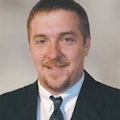As if the Georgia Supreme Court decision on inherent diminished value (DV) wasn't enough, the collision repair industry has received another black eye. The industry's image this time has been tarnished by a CBS Evening News report on body shop rip-offs in early February.
The "Eye on America" segment by CBS News Correspondent Bill Whitaker examined the work of the California Bureau of Auto Repair (BAR) to protect the state's consumers from fraud and improper repairs. In classic network television news fashion, however, the sensationalism in the report overpowers the important facts about fraud every vehicle owner should understand.
In the video clip of the segment available on the CBS News Web site, Warren Samm, a chief investigator for the California Bureau of Automotive Repair (BAR) says that in "Ninety percent of my cases I do, I uncover some amount of fraud."
This is frightening and is certain to attract a vehicle owner's attention when watching the evening news. But, the statement unfairly paints the collision repair industry as the perpetrators of widespread crime and fraud against the motoring public.
Does Samm's statement mean that 90 percent of body shop repair jobs involve some amount of fraud? Certainly not!
The BAR itself is currently attempting to quantify how widespread fraud exists among collision repairers in the state. In 2000, Gov. Gray Davis signed a bill requiring the BAR to conduct a pilot program to determine how much fraud is in the industry. The BAR is gathering information by inspecting consumer vehicles and intends to submit recommendations to the legislature by Sept. 1, 2003. (See "California's BAR begins its post-pilot repair program," ABRN, News, August 2001).
The CBS News program, however, points towards a greater need for the collision repair industry-actively promoting a positive image.
For the last several years, I have been involved with the National Auto Body Council (NABC), the lone industry group whose sole mission is to develop and implement programs to improve the collision repair industry's image with the public. You have probably read our continuing coverage on the NABC's efforts to raise funds to build a clinic at the Camp Mak-A-Dream oncology camp for children and young adults. I urge you to support this effort.
The NABC jumped into action immediately upon hearing about the CBS News report. The group maintains a quick response committee to address news reports such as this that portray the industry incorrectly. While the quick response helps to set the record straight, the group needs your help to become more proactive in its efforts. How can this be accomplished?
Programs such as the NABC/Camp Mak-A-Dream project and the NABC's House that PRIDE Built partnership with Habitat for Humanity in 2000, help to show the public-minded spirit of concerned collision repairers. But beyond these charitable efforts, the NABC needs your support to become more proactive on issues such as fraud and repair and provide consumers with quality information. I urge you to visit the NABC's Web site at www.autobodycouncil.org to find out how you can become involved.
The negative image the public has of the collision repair industry hurts our businesses in an untold number of ways. One critical impact of the industry's negative image is that it discourages young people from taking up a career in collision repair.
Every industry has its bad characters. But you don't have to suffer from their malfeasance. Take the time to become involved and promote the good things you do to keep the motoring public moving. Maybe then, network news will pick up on the value you bring to your community each and every day. Your business can benefit and you'll find you feel a little better about going to work each day.
About the Author

Russell Thrall III
Former ABRN Editor-in-Chief Russell Thrall, a second-generation collision repairer, has experienced the shop from the bottom up, starting as a clean up person and working his way to assistant manager by age 17. Thrall joined the staff of Chilton's Automotive Body Repair News in 1991 as technical editor and as senior editor in 1992. From 1993 through 2000, Thrall served as editor of Collision Repair Industry INSIGHT. Thrall returned to the staff of ABRN in June 2000 as editor-in-chief of the industry's largest monthly trade magazine. Thrall was a frequent speaker at industry events including the Collision Industry Conference (CIC), NACE, and numerous other local and regional events. He served as co-chairman of the Collision Industry Conference Electronic Commerce committee and is a member of the Board of Directors of the National Auto Body Council.